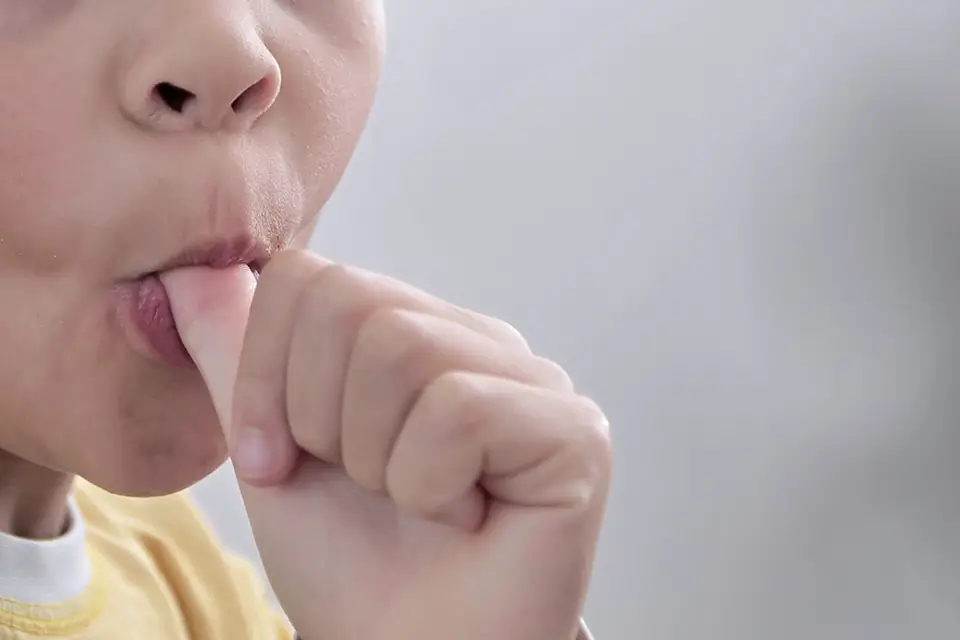
Bone Grafting
At Zara Dental, we can restore your smile with tooth replacement techniques such as dental implants or implant-supported dentures. Furthermore, we provide bone augmentation and bone grafting techniques to replace missing bone.
Quick care for sudden oral problems, ensuring immediate relief and treatment.
Comprehensive oral care for all ages, promoting lifelong dental health and well-being.
Routine checkup for oral health, detecting issues early and maintaining a healthy smile.
Specialized oral care for children, ensuring a healthy smile and positive dental experiences.
Professional oral hygiene procedure removing plaque, tartar, and stains for a healthier smile.
Surgical removal of teeth for oral health, relieving pain and preventing complications.
Thin porcelain shells bonded to teeth, improving appearance and covering imperfections.
Cosmetic procedure to lighten and brighten teeth, enhancing smile aesthetics.
Fixed prosthetic device replacing missing teeth, restoring oral function and appearance.
Custom-made restoration caps a damaged tooth, restoring its shape, strength, and function.”
Specialized dental care for children, correcting tooth and jaw issues to ensure healthy development.
Straightening and aligning teeth for improved oral health and a confident smile.
Clear, removable aligners for discreet teeth straightening, offering a comfortable and nearly invisible orthodontic solution.
Custom devices maintain post-orthodontic tooth alignment, preserving your newly corrected smile.
Permanent tooth replacements surgically anchored for natural appearance and function.
Full-arch tooth restoration with four implants, offering stable and efficient smile rehabilitation.
Surgical procedure to strengthen and rebuild bone, often used for dental implant support.
Dental procedure to treat infected or damaged tooth pulp, relieving pain and preserving the tooth.
Restoration of cavities with materials like composite or amalgam, preserving tooth integrity and function.
Non-invasive procedure using special materials to repair and enhance teeth, improving appearance and function.”
Removable prosthetic teeth to replace missing ones, restoring oral function and aesthetics.
Techniques to relax and ease anxiety during dental procedures, ensuring patient comfort and a stress-free experience.
At Zara Dental, we can restore your smile with tooth replacement techniques such as dental implants or implant-supported dentures. Furthermore, we provide bone augmentation and bone grafting techniques to replace missing bone.
A bone graft is a surgical procedure that addresses issues related to bones or joints. Bone grafting is a viable treatment option for repairing bone damage caused by trauma or addressing joint dysfunction. It can also aid in the growth of bone around a dental implant if the surrounding bone has been damaged or lost. Furthermore, a bone graft can serve to augment an area where the bone is insufficient or provide support to maintain structural integrity.
Use of the patient’s own bone, bone from a donor, or artificial bone material are all possible options for bone grafting. If the patient’s body accepts the dental implant, it may offer a feasible location for osseointegration, enabling the formation of new, living bone tissue.
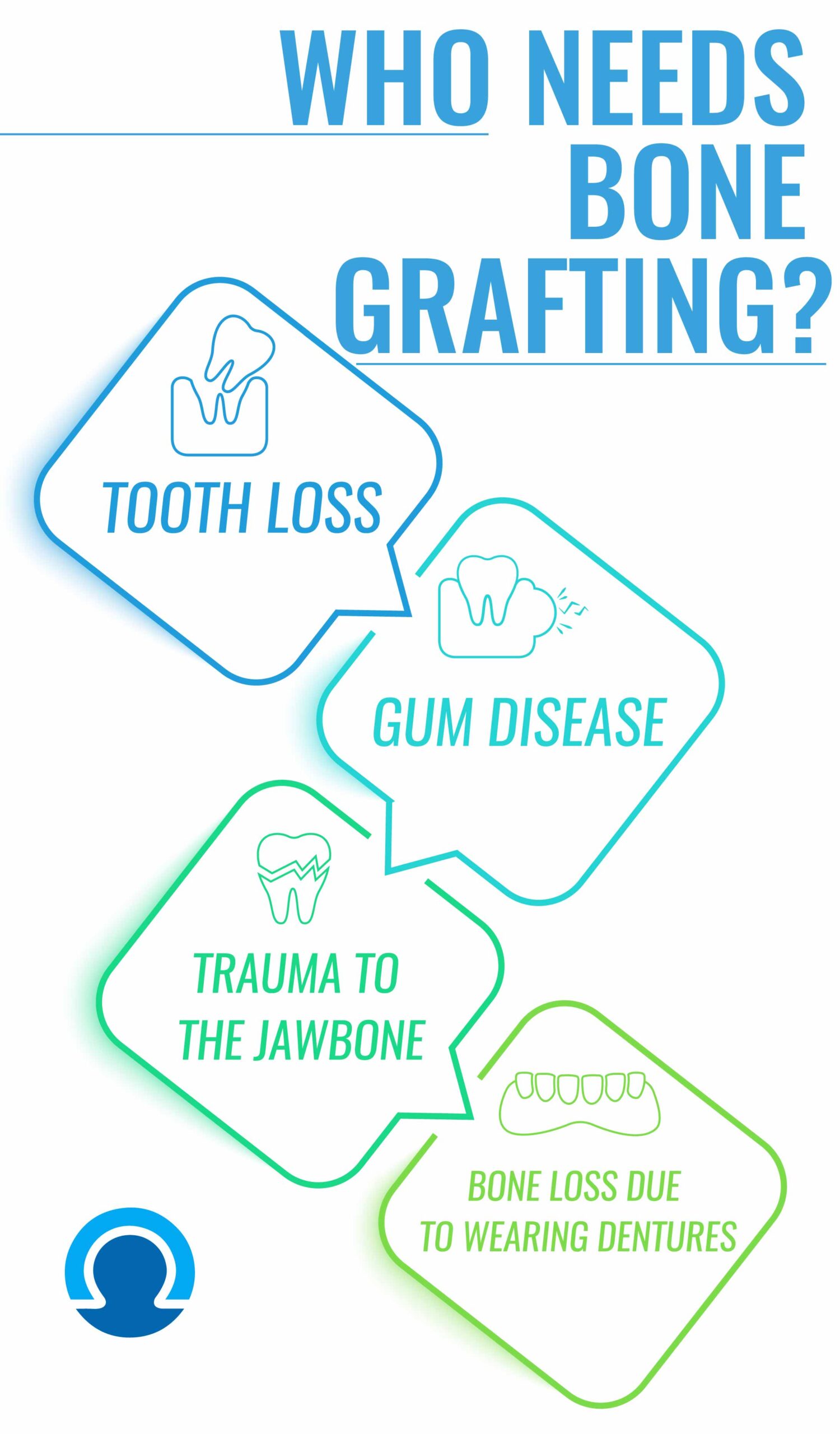
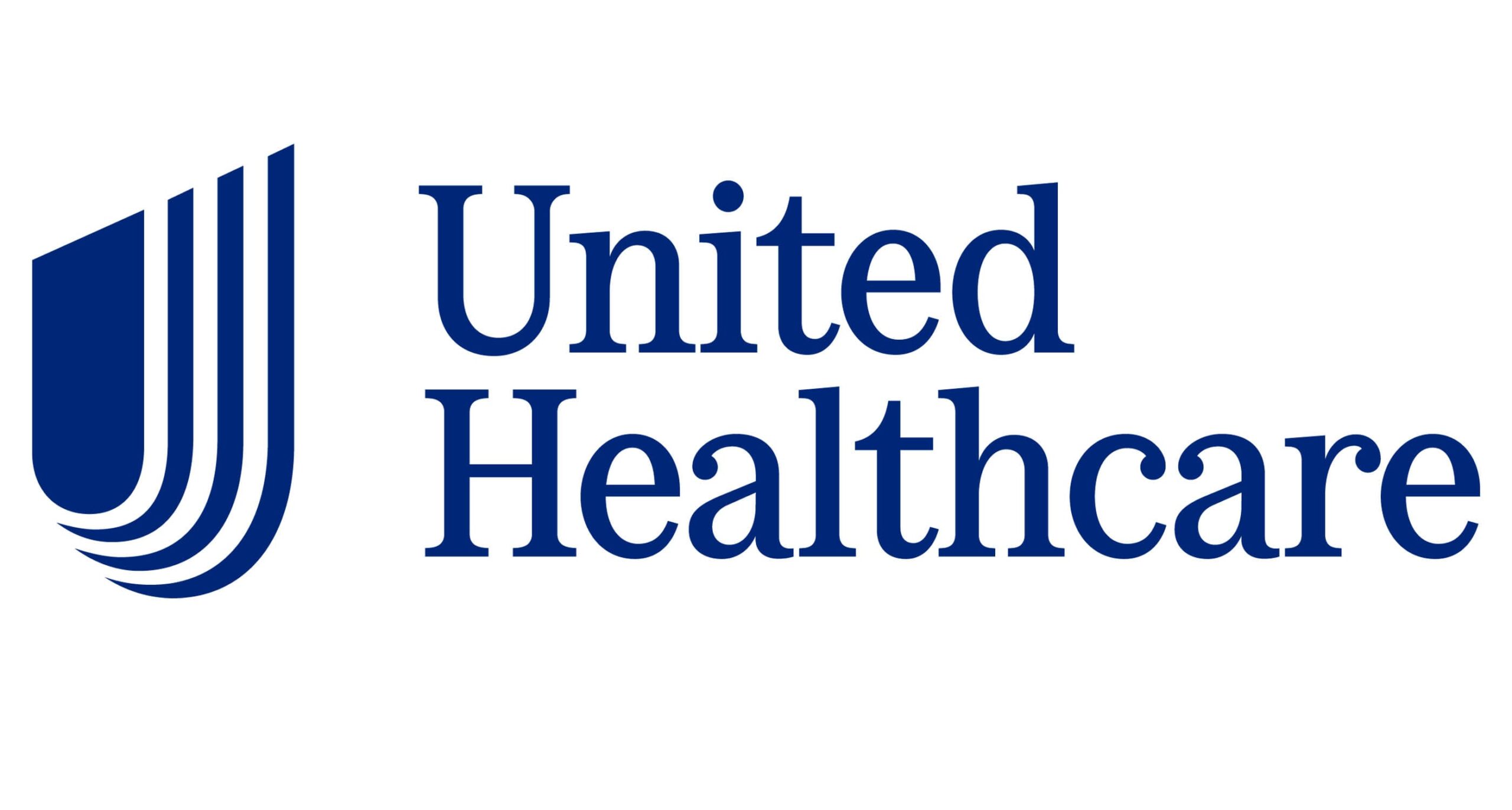


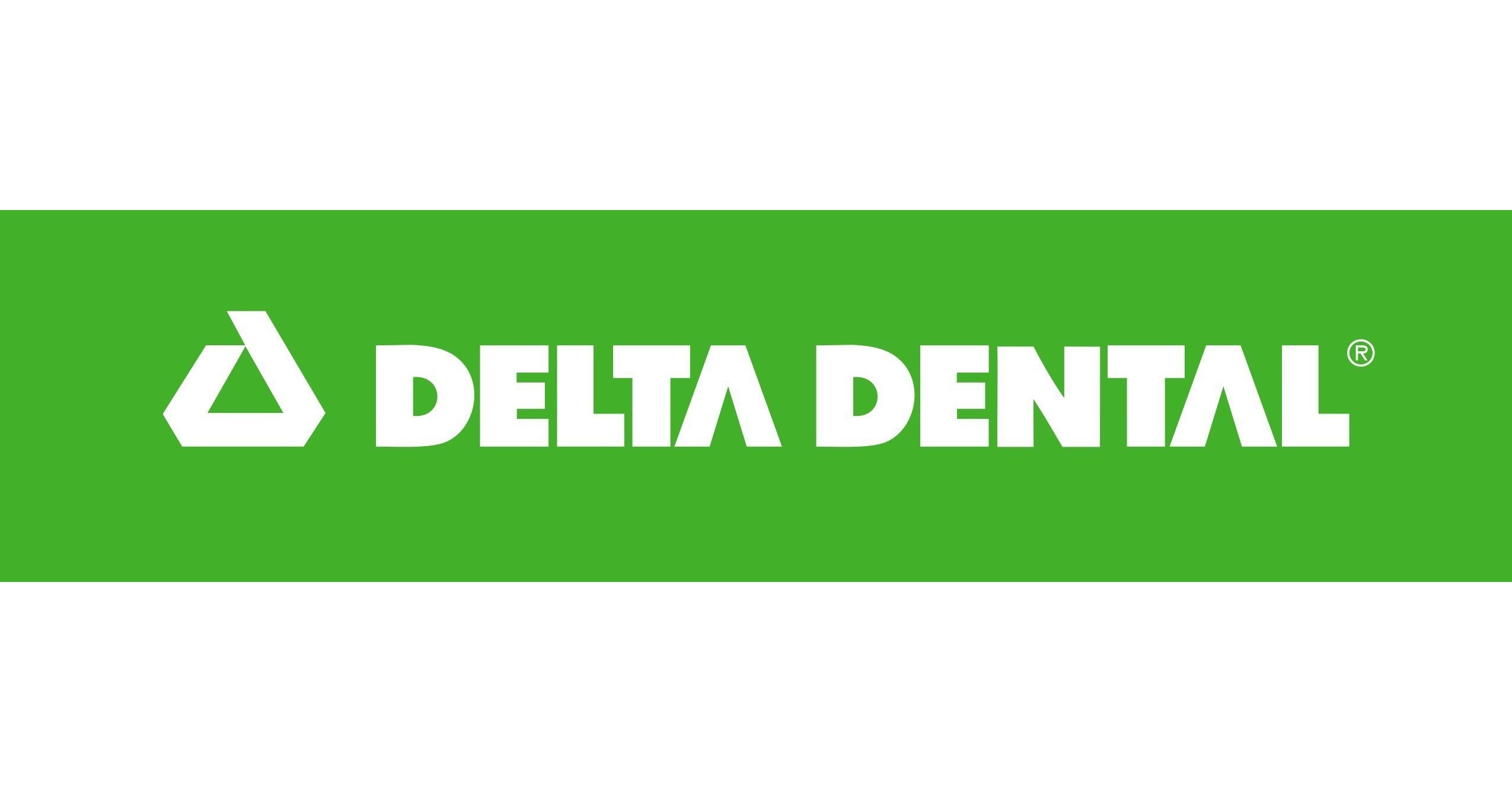

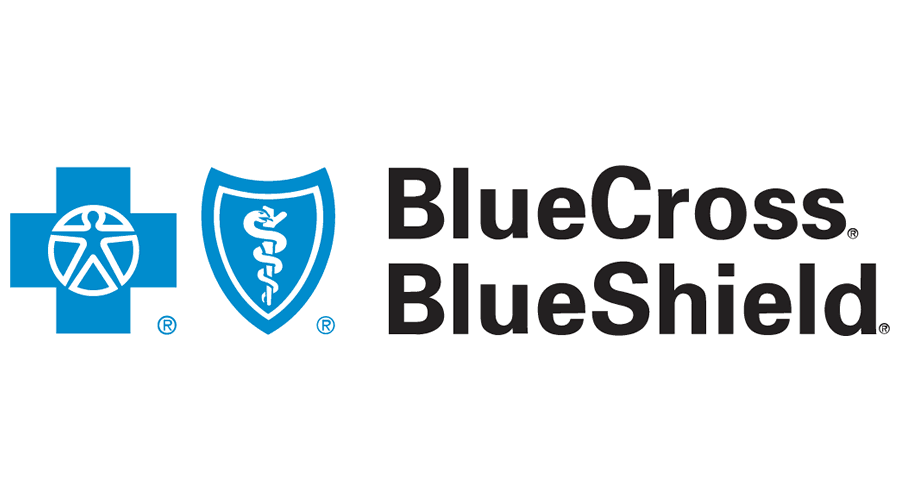



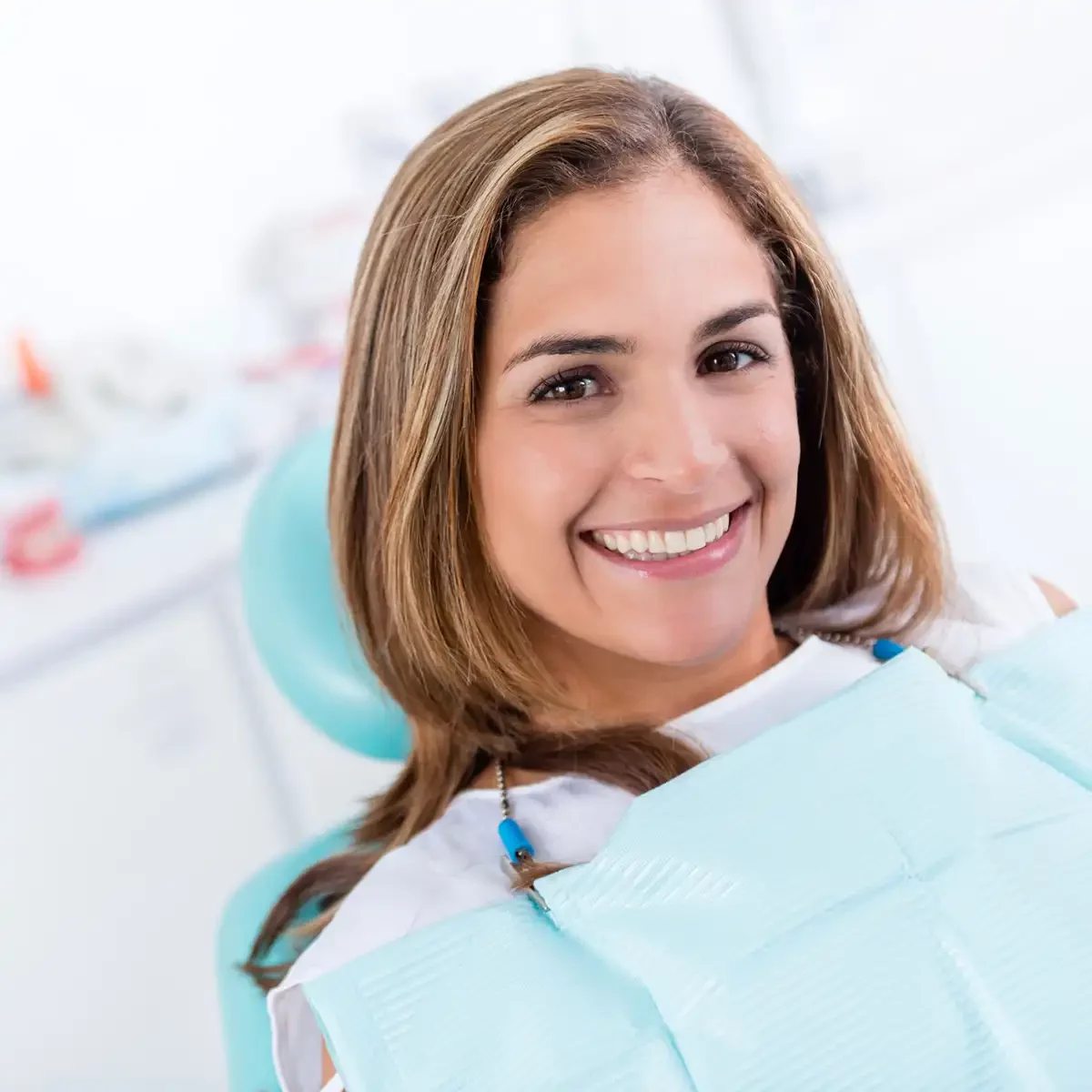
A dental bone graft may be necessary if you have suffered bone loss or damage as a result of periodontal disease, poorly fitting removable dentures, or oral trauma. Bone grafting is a procedure in which we replace or augment the bone surrounding the teeth. Bone grafting is a useful technique in implant placement and enhancing the fit and comfort of removable prostheses, especially in bone loss or damage cases. In addition, in cases where a patient's missing tooth affects the smile zone, bone grafting can enhance the aesthetic appearance.
Initially, the dentist will administer a local anesthetic to desensitize the region. The next step is to create a small incision in your gingival tissue. In order to visualize the jawbone and access a small portion of gum tissue, it is necessary to perform a minor surgical procedure. Following the sterilization and disinfection of the site, the dentist proceeds to pack the cavity with a bone grafting substance. In numerous instances, a membrane is placed over the bone graft to provide an additional layer of protection. The gingival tissue is subsequently repositioned, and we suture the incision to close.
The three types of bone grafting are autogenous, allograft, and xenograft. An autogenous graft involves the transfer of bone from a specific region of the patient's body to the grafting site. Alternatively, an allograft involves the utilization of artificial bone or bone obtained from a bone repository. Finally, the xenograft consists of the use of bovine or cow bone. Dentists consider the autogenous bone graft the most effective and successful option among these three options. Autogenous bone grafting is the most effective method of grafting as it involves using live bone that promotes bone growth and aids in the healing process. If your dental needs necessitate a bone graft, Zara Dental Services' highly trained and qualified dentists and staff will be by your side to walk you through the process every step of the way.
Increased Stability
Improved Oral Function
Improved Aesthetics
Better Dental Implant Success Rate
Reduced Risk of Jawbone Loss
"I feel excited and grateful to the work team and the wonderful doctor who removed my teeth. I recommend Zara Dental, they are the best ❤️🙏🏽"
Cintia Sosa
"This place is amazing, they really make you feel comfortable and they’re very professionals. Great experience with the stuff and the doctors 10/10"
Permanent Beauty
"Great environment and the customer service is excellent! Receptionist Vianka was very helpful during my visit. She was very patient when regarding all my questions and concerns, made me feel heard."
Yaritza Correa
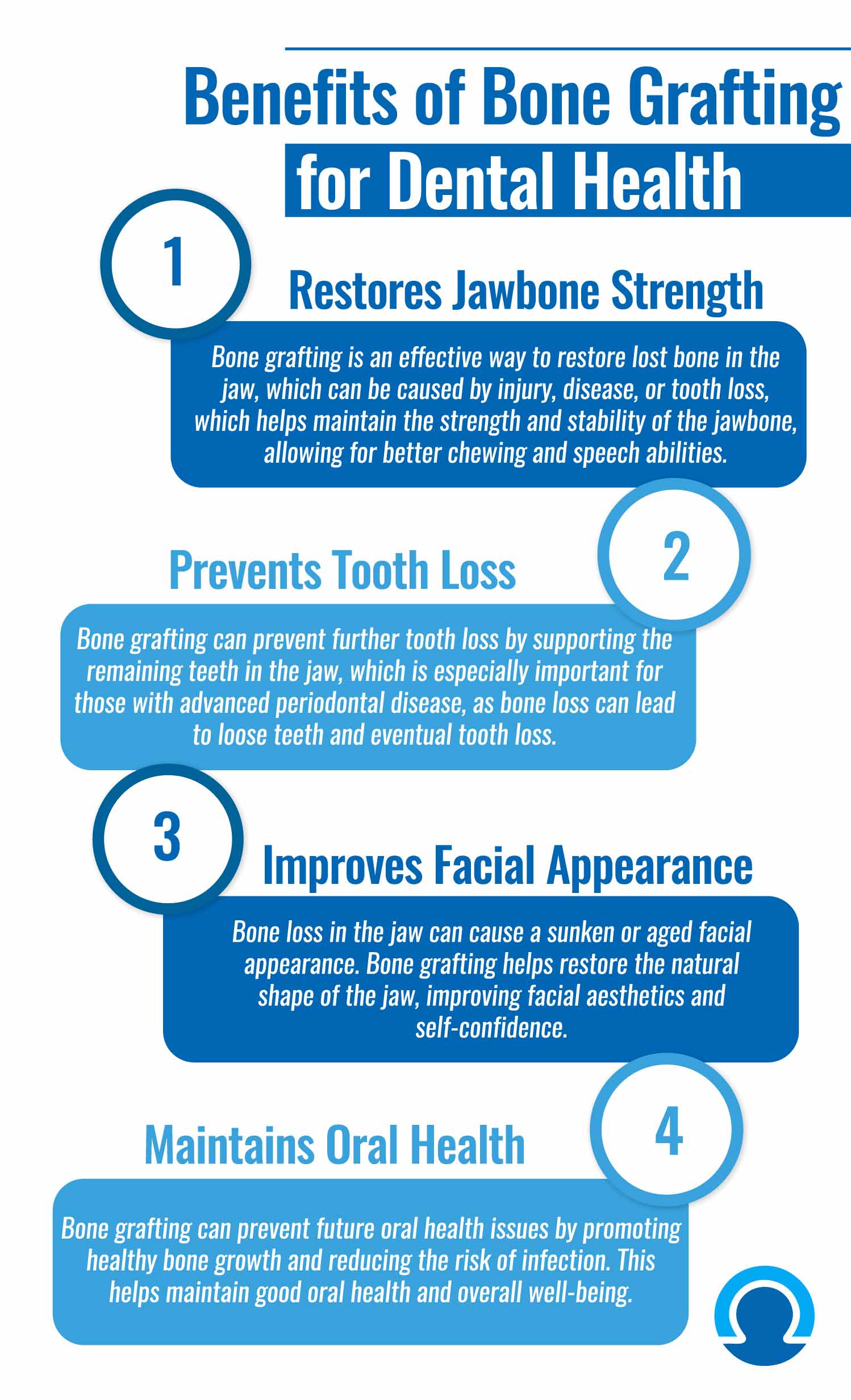
Consult with your Zara dentists regarding the necessary preparations for your upcoming bone graft procedure. We recommend inquiring about discontinuing any medications, such as blood thinners, before the procedure. Also, we recommend that you quit smoking prior to your procedure in order to promote faster healing. Inform your dentist about all the medications you are currently taking, including over-the-counter drugs such as aspirin. Additionally, please inform us if there have been any changes in your health, such as the presence of a fever.
Additional imaging tests such as X-rays, CT scans, or magnetic resonance imaging may be necessary before your MRI procedure.
Depending on the purpose of your bone graft, it may be necessary to make more arrangements in advance. Before your dental procedure, we advise refraining from consuming any food or beverages after midnight on the evening before.
Patients may experience discomfort, inflammation, and discoloration following a dental bone graft procedure. These are typical post-treatment reactions that we expect to subside within the next few days. Painkillers can assist in alleviating the symptoms. Furthermore, your dentist might prescribe antibiotics to you. Please follow your dentist’s instructions precisely.
During the first few days, you might see small pieces of bone coming out of the wound. Most of the time, these pieces look like grains of salt or sand. In most cases, there is nothing to worry about, but you can call your dentist at Zara Dental to make sure.
Your dental insurance or extended dental coverage may usually cover the cost of your bone grafting. However, if you don’t have insurance or If you are looking for more information about the price of a specific service, please get in touch with one of our professional Zara Dental staff for help. They can help create an affordable payment plan so you can get the dental treatment you need.
Thanks to the progress of dental science, you have nothing to worry about for any dental service you need, such as dental implants, tooth extraction, root canal, etc.
Call us today and give yourself the oral care and hygiene you deserve.